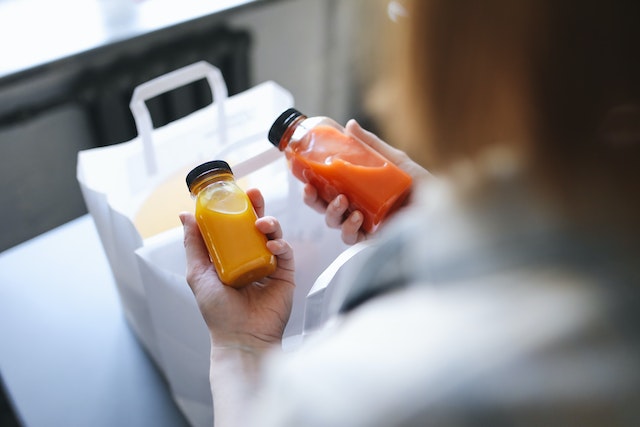
When can I introduce purees to my baby?
when do babies start eating pureed food? The American Academy of Pediatrics recommends introducing solid foods / purees to babies around six months of age. At this age, babies have developed the necessary skills to swallow solid foods and are better able to digest them. Starting with purees is a common approach as they are easy to swallow and provide a smooth transition from liquid to solid foods.
Purees are also a great way to ensure that your baby is getting the necessary nutrients for their growth and development. At this stage, babies still rely heavily on breast milk or formula for their nutritional needs, but introducing purees allows them to explore new flavors and textures. Purees can be made from a variety of fruits, vegetables, and grains, providing a wide range of vitamins, minerals, and fiber.
Introducing Purees to Your Baby’s Diet
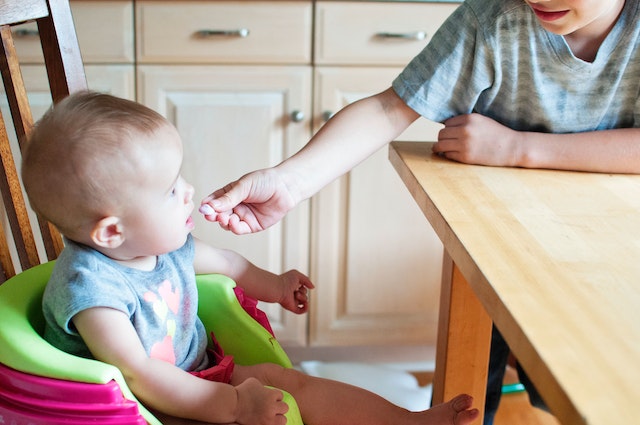
When starting with purees, it is important to introduce them gradually and one at a time. This allows you to monitor your baby’s reaction to each new food and identify any potential allergies or intolerances. Begin by offering a small amount of puree on a spoon or your finger and observe how your baby reacts. If they seem interested and eager for more, you can gradually increase the amount.
There are many different types of purees you can try with your baby. Fruits like apples, pears, and bananas are popular choices, as are vegetables like sweet potatoes, carrots, and peas. You can also introduce grains like rice or oatmeal. You should offer a variety of flavors and textures to expose your baby to different tastes and help them develop a diverse palate.
When do babies start eating pureed food?
When it comes to the amount of puree to feed your baby, start with small portions and gradually increase as they become more comfortable with eating. It is important to remember that at this stage, solid foods are still a complement to breast milk or formula, so they should not replace them entirely. Offer purees once or twice a day, gradually increasing the frequency as your baby gets older.
Signs Your Baby is Ready for Solid Foods: when do babies start eating pureed food.
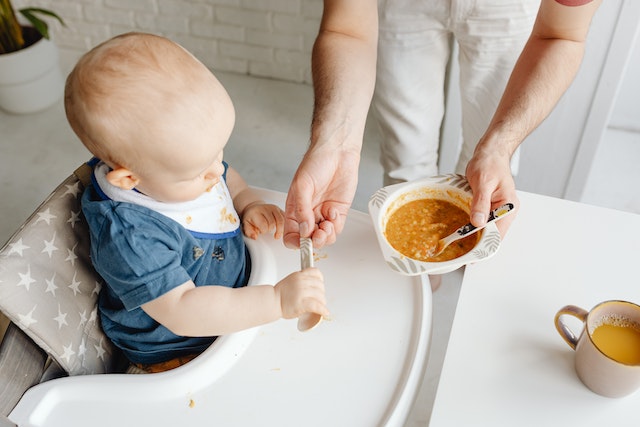
Before introducing solid foods, look for signs that your baby is ready. These signs can be both physical and behavioral. Physically, your baby should be able to sit up with support and have good head control. They should also have lost the tongue-thrust reflex, which causes them to push food out of their mouth with their tongue.
Behaviorally, your baby should show an interest in food and try to grab it when you are eating. They may also start to mimic chewing motions or show signs of hunger more frequently. Wait for these signs of readiness before introducing solid foods, as starting too early can increase the risk of choking and digestive issues.
Choosing the Right First Foods for Your Baby: when do babies start eating pureed food?
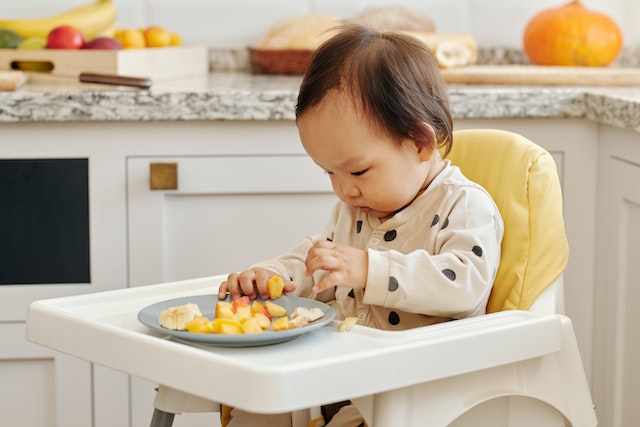
When choosing the right first foods for your baby, focus on nutrient-dense options that are easy to digest. Fruits like avocados, bananas, and pears are great choices as they are soft and provide essential vitamins and minerals. Vegetables like sweet potatoes, carrots, and peas are also good options as they are rich in nutrients and have a mild flavor.
Avoid certain foods in the beginning, such as honey, cow’s milk, and foods that are high in salt or sugar. These foods can be difficult for babies to digest and may increase the risk of allergies or other health issues. It is also important to introduce a variety of foods to your baby to expose them to different flavors and textures. This can help prevent picky eating habits later on and ensure that your baby is getting a wide range of nutrients.
Preparing Homemade Baby Food: Tips and Tricks
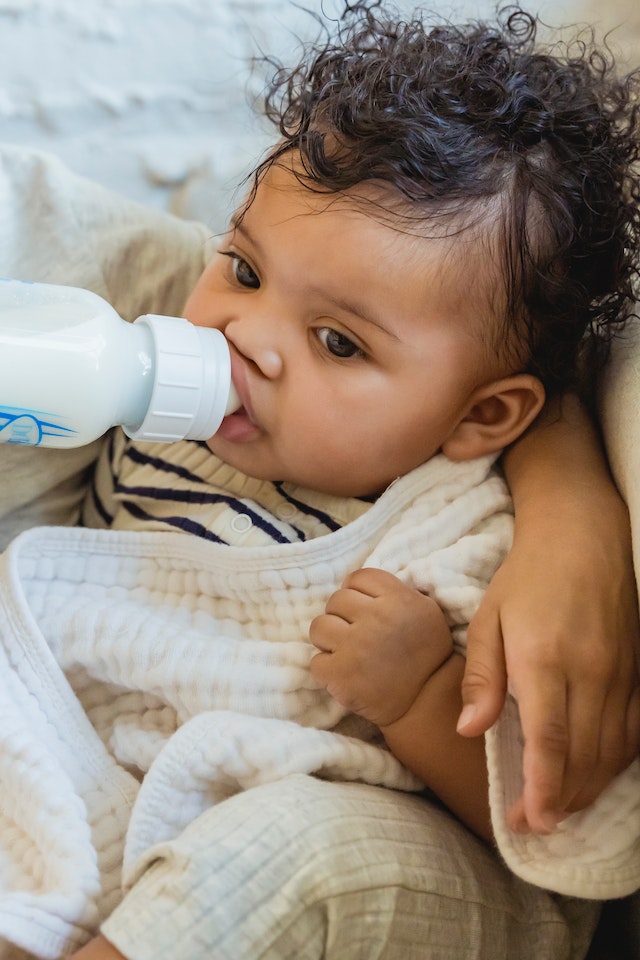
Making your own baby food at home can be a cost-effective and nutritious option. It allows you to have control over the ingredients and ensures that your baby is getting fresh and wholesome food. To make homemade baby food, you will need a few basic tools such as a blender or food processor, a steamer or pot for cooking, and storage containers for freezing.
When preparing homemade baby food, choose fresh and organic ingredients whenever possible. Wash fruits and vegetables thoroughly and remove any seeds or pits. Steam or cook the ingredients until they are soft and then puree them in a blender or food processor until smooth. You can add breast milk, formula, or water to achieve the desired consistency.
It is important to store homemade baby food properly to maintain its freshness and nutritional value. Divide the puree into small portions and freeze them in ice cube trays or small containers. Once frozen, transfer the portions to a freezer bag or container and label them with the date. This allows you to easily thaw and serve individual portions as needed.
Common Mistakes to Avoid When Feeding Your Baby Purees : when do babies start eating pureed food?
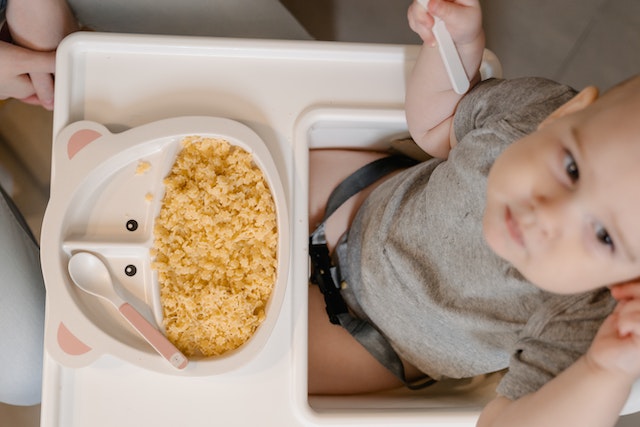
When feeding your baby purees, there are some common mistakes that you should avoid. One of the most common mistakes is overfeeding your baby. It is important to remember that solid foods are still a complement to breast milk or formula, so they should not replace them entirely. Offer small portions of puree and let your baby guide you on how much they want to eat.
Another common mistake is introducing too many new foods at once. This can overwhelm your baby’s digestive system and make it difficult to identify any potential allergies or intolerances. Introduce one new food at a time and wait a few days before introducing another. This allows you to monitor your baby’s reaction and identify any potential issues.
It is also important to pay attention to your baby’s cues when feeding purees. Look for signs of hunger or fullness and respond accordingly. If your baby turns their head away or closes their mouth, they may be indicating that they are full. It is important to respect their cues and not force them to eat more than they want.
How to Progress from Purees to More Solid Foods: when do babies start eating pureed food?

As your baby gets older and more comfortable with eating, you can start to introduce more textured foods. Signs that your baby is ready for more solid foods include being able to sit up unassisted, having good hand-eye coordination, and showing an interest in self-feeding. You can start by offering soft finger foods like small pieces of cooked vegetables or fruits.
To introduce more textured foods, you can also start mashing or chopping the purees instead of blending them until smooth. This allows your baby to experience different textures and develop their chewing skills. You can also offer soft cooked grains like rice or pasta, as well as mashed beans or lentils.
It is important to continue offering a variety of foods to your baby as they progress from purees to more solid foods. This helps them develop a diverse palate and ensures that they are getting a wide range of nutrients. Offer a mix of fruits, vegetables, grains, and proteins, and try to introduce new foods regularly to keep things interesting.
Conclusion: when do babies start eating pureed food?
Introducing solid foods to your baby is an exciting milestone in their development. It allows them to explore new flavors and textures and provides essential nutrients for their growth and development. By starting with purees and gradually progressing to more solid foods, you can ensure that your baby is getting a varied and nutritious diet. Remember to look for signs of readiness, choose the right first foods, and pay attention to your baby’s cues. With a little patience and experimentation, you can introduce your baby to a world of delicious and healthy foods.

